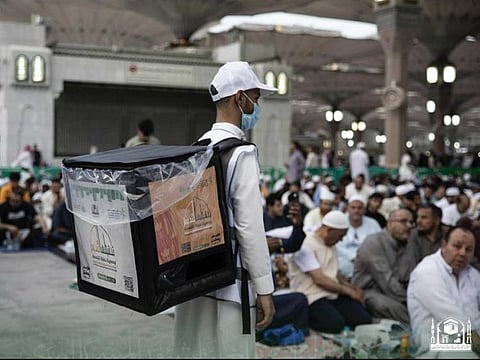Saudi drive to curb food waste gathers momentum
Ministry offers tips for public to re-use food leftovers in Ramadan

Cairo: In the latest effort to reduce food waste in Saudi Arabia, the kingdom’s Ministry of Environment, Water and Agriculture has published tips about dealing with and re-use of leftovers during the month of Ramadan.
The ministry has posted a Twitter graph urging members of the public to keep food leftovers in a tight box inside the refrigerator, avoid mixing them with old food, drying leftover fruits for making jam and slicing bread and preserving it for fresh usage.
The ministry has, moreover, called for donating the food leftovers to the needy people and food preservation groups.
Several initiatives have been unveiled in Saudi Arabia to curb food waste during the month of Ramadan when food consumption usually increases.
The kingdom’s General Food Security Authority (GFSA), a government body, has recently launched a campaign to urge the public to reduce food waste in Ramadan.
The drive, entitled “With Frugality, It lasts”, aims at raising public awareness about the importance of limiting food waste and aspects of extravagance.
GFSA cited findings of a study showing that food waste reaches around 33 per cent with an estimated value of about SR40 billion per year in Saudi Arabia.
Muslims have to abstain from eating and drinking daily from dawn to sunset during the lunar month of Ramadan, which is expected to end on Thursday.
The month of Ramadan is marked by family gatherings and meals after a day-long fast.
Tomatoes top the list of the most wasted vegetables in Saudi Arabia with 97,000 tonnes annually, according to GFSA figures.
Potatoes follow second with 67,000 tonnes wasted yearly. Coming third are Zucchini with 14,000 tonnes followed by carrots with 12,000.
Sign up for the Daily Briefing
Get the latest news and updates straight to your inbox



